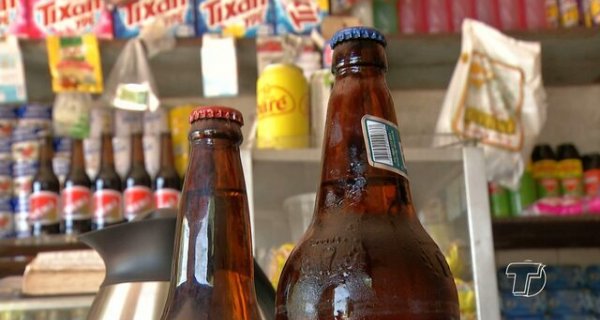According to the head of the National Association for the Fight against Drugs, Cláudio Pinto, "with each passing year there is a high rate of drug consumption in Angola", the main alcoholic beverages being cannabis sativa or liamba and 'crack', including also new drugs such as tembu, from a plant discovered in the province of Cuanza Sul, "a drug of the stimulant category, which is also killing many people in the southern region".
Drugs such as cocaine and 'crack', according to Cláudio Pinto, are more consumed in the provinces of Luanda, capital of Angola, Namibe, Huíla and Benguela.
With regard to the consumption of alcoholic beverages, the situation is more serious in the provinces of Luanda, Moxico, Lunda Sul, Lunda Norte, Cuando Cubango and Benguela, while for traditional alcoholic beverages the concern is in the provinces of Malanje, Cuanza Norte, Bengo, Uíje and Cunene.
“There is a high rate of consumption of traditional alcoholic beverages, homemade ones, namely kapuca, macau, maruvo and other derivatives of various roots, made in the south, south center and north of the country”, he stressed.
Liamba consumption, as indicated by the president of the National Association for the Fight against Drugs, is more pronounced in the provinces of Luanda, Cuanza Norte, Malanje, Uíje, Lunda Sul, Lunda Norte and Moxico.
Social issues and the breakdown of families are identified as the main reasons that lead individuals between 12 and 65 years old, mostly young people, to consume alcoholic beverages excessively, stressed Cláudio Pinto.
The association leader stated that "every day people die in Angola due to the consumption of drugs, mainly alcoholic beverages and liamba, which kill like malaria in the country".
For Cláudio Pinto, the consumption of marijuana and alcoholic beverages is a public health issue, which civil society and the Government must “look at with eyes to see”.
According to the president of the National Association for the Fight against Drugs, every day 90 people seek the services of the Psychiatric Hospital of Luanda as a result of excessive consumption of alcoholic beverages”, he underlined.
Cláudio Pinto complained about the delay in approving the Draft Law on the Regime and Consumption of Alcoholic Beverages, submitted in 2020 to the National Assembly, to date without scheduling for discussion.
“The interests are in the National Assembly. Who owns the big liquor factories, who are the big liquor wholesalers? Many of them are in the National Assembly”, said Cláudio Pinto, noting that he has made contacts with the parliamentary groups of the Popular Movement for the Liberation of Angola (MPLA), National Union for Total Independence of Angola (UNITA), the sixth commission of the National Assembly and the group of women parliamentarians, in order to schedule the proposal.
“Angola, with around 34 million inhabitants, consumes more alcoholic beverages than the Democratic Republic of Congo, which has 80 million inhabitants, than South Africa, which has 60 million inhabitants”, he compared.
With a focus on prevention, the association, founded in 2004, has registered more than 3000 people who live with drug problems in the country.
“We do what we can (…), but we are an unfunded non-governmental organization (…), we are not concerned with saving millions. In 100 people, if we save one, we already feel satisfied, because we do not have enough conditions to help everyone”, he said, stressing that “the consumption of alcoholic beverages and cannabis is widespread in the country”.
On the 26th of June, the International Day Against Drugs, the highest point of the celebrations takes place in the province of Malanje, with the holding of the first northern regional forum, which will bring together the northern provinces of the country, in which representatives of ministerial, with emphasis on the National Institute of Employment and Professional Training, partner of employability policies, in recovered patients.







